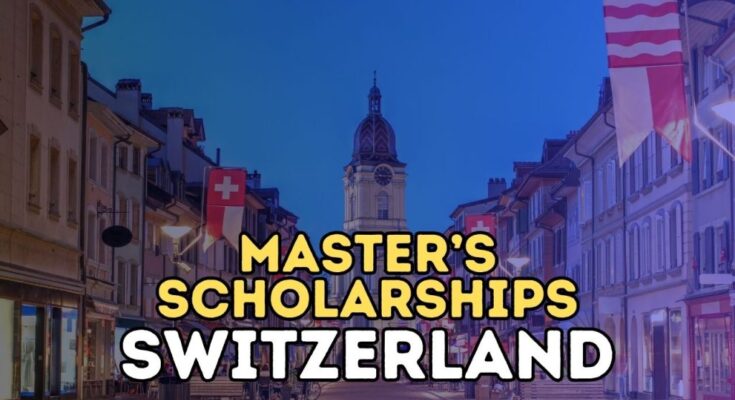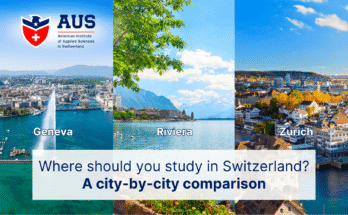The Alpine Summit of Academia Nestled in the heart of Europe, Switzerland is synonymous with precision, innovation, and breathtaking landscapes. This reputation is powerfully embodied in its two flagship federal institutes of technology: ETH Zurich (Eidgenössische Technische Hochschule Zürich) and EPFL (École polytechnique fédérale de Lausanne). Consistently ranked among the top universities in the world, these institutions are magnets for the brightest minds in science, engineering, and technology. For any aspiring student, the chance to study at either is a golden ticket. But choosing between them is a significant decision. This is not a choice between better and worse, but between two distinct paradigms of excellence.
Understanding the differences between these two Alpine giants—from their academic philosophies and campus cultures to their locations and linguistic environments—is crucial for making the right choice for your future.
The Legacy of Einstein vs. The Spirit of Silicon Lakeshore
The most fundamental difference lies in their history and core identity.
ETH Zurich, founded in 1855, is the venerable elder. Its hallowed halls have been walked by no less than 21 Nobel laureates, including the most famous scientist of all, Albert Einstein. This legacy is palpable. ETH embodies a tradition of deep, fundamental research and rigorous academic discipline. It is an institution built on a bedrock of engineering, mathematics, and natural sciences, with a methodical and thorough approach to education. Walking through its main building in the centre of Zurich feels like walking through a museum of scientific history.
EPFL, in contrast, is the dynamic prodigy. While its roots date back to the 19th century, it truly came into its own as a federal institute in 1969 and has undergone a meteoric rise over the past few decades. Its ethos is aggressively modern, entrepreneurial, and interdisciplinary. Often compared to Stanford for its startup culture, EPFL’s campus is a hub of innovation, dubbed the “Silicon Lakeshore” in reference to Lake Geneva. The focus here is not just on understanding the world but on actively building the future, with a strong emphasis on turning research into viable companies and products.
Academic Profiles: Depth and Breadth
Both schools offer world-class programmes across STEM fields, but their strengths and structures have subtle nuances.
ETH Zurich is often considered the stronger of the two in fundamental and theoretical subjects. It is consistently top-ranked in fields like:
- Chemistry (particularly inorganic and physical)
- Physics (theoretical, particle, and quantum)
- Mathematics
- Earth Sciences and Environmental Science
- Civil and Mechanical Engineering
Its curriculum is known for being exceptionally demanding, with a legendary “first-year exam” (Basisprüfung) that serves as a major filter. The approach is structured, rigorous, and designed to build an unshakable foundation.
EPFL has carved out a dominant position in applied sciences, computer science, and engineering. It is a powerhouse in:
- Computer Science and Artificial Intelligence
- Electrical Engineering and Microengineering
- Life Sciences and Bioengineering
- Communication Systems and Data Science
- Robotics and Renewable Energy
EPFL’s curriculum is also challenging but often incorporates more project-based learning from an earlier stage. Its flagship Section des Sciences de Base (first-year core) allows students more flexibility to choose their final major after a year of broad study, a stark contrast to ETH’s more fixed entry paths.
Location and Lifestyle: Urban Sophistication vs. Laid-Back Lakeside
Where you live is a huge part of your student experience, and here the two schools could not be more different.
ETH Zurich is located in Switzerland’s largest city, a global financial hub. Zurich is efficient, wealthy, and culturally rich, with world-class opera, museums, and a vibrant nightlife. It’s also one of the most expensive cities on the planet. The ETH campus is integrated into the city, with the main building on a hill overlooking the historic centre and the newer, cutting-edge Hönggerberg campus a short tram ride away. Life here is fast-paced, international, and professional.
EPFL is situated on the shores of Lake Geneva (Lac Léman) in the French-speaking part of Switzerland. Lausanne is a smaller, hillier city known for its stunning views, Olympic Museum, and more relaxed, Mediterranean vibe. The cost of living is still high but generally slightly lower than Zurich. EPFL’s campus is a massive, self-contained, modern complex with its own train station, restaurants, bars, and student housing. This creates a strong, cohesive campus community where students live, work, and socialize in one place. The nearby presence of the University of Lausanne (UNIL) also adds to the social and academic dynamism.
The Language Question: Deutsch oder Français?
Language is a critical practical consideration.
- Bachelor’s Level: All undergraduate teaching at ETH Zurich is in German. Proficiency at a C1 level is a strict requirement for admission. While Master’s programmes are in English, you need German to navigate daily life in Zurich.
- Bachelor’s Level: All undergraduate teaching at EPFL is in French. Similarly, a C1 level in French is mandatory for admission to a Bachelor’s programme.
For both institutions, the vast majority of Master’s and PhD programmes are taught entirely in English, attracting a hugely international cohort of students. However, even for English-taught programmes, learning the local language (German in Zurich, French in Lausanne) is essential for integration, making friends, and finding internships or jobs outside the university bubble.

The Admissions Hurdle: A High Bar for All
Gaining admission to either school is intensely competitive. Both require an excellent secondary school diploma that is recognized by the Swiss authorities. For many international students, this can be a complex process, and some may be required to take a reduced set of entrance exams (Reduzierte Aufnahmeprüfung). The key is to start the application process early and meticulously prepare all required documents, including proof of language proficiency.
Career Prospects: A Passport to the Top
A degree from either institution is a powerful credential that opens doors globally. The rigorous training is highly valued by employers in industry (from Google and IBM to Nestlé and Novartis), in finance, and in academia.
ETH’s strong theoretical foundation produces graduates highly sought after for PhD programmes at elite universities and for R&D roles in established industries. EPFL’s entrepreneurial ecosystem provides unparalleled support for students wanting to launch startups, with incubators, venture capital networks, and a culture that celebrates risk-taking.
Conclusion: Which Summit is Yours to Climb?
The choice between ETH Zurich and EPFL is ultimately a personal one, reflecting your academic style, career ambitions, and personality.
Choose ETH Zurich if:
- You thrive in a tradition of deep, theoretical, and fundamental science.
- Your interests lie in chemistry, physics, mathematics, or classical engineering.
- You prefer the energy and opportunities of a major, global financial capital.
- You are proficient in German or are highly motivated to learn it.
Choose EPFL if:
- You are drawn to applied sciences, computer science, and fast-moving technology fields.
- You have an entrepreneurial spirit and want to be immersed in a startup culture.
- You prefer a more relaxed, lakeside lifestyle with a strong, centralized campus community.
- You are proficient in French or are highly motivated to learn it.
Both ETH Zurich and EPFL represent the pinnacle of European education. They are demanding, enriching, and transformative. Whichever you choose, you will be challenged to your limits, surrounded by brilliance, and positioned at the forefront of global innovation. Your journey will be tough, the winters may be long, but the view from the top—both literally and figuratively—is absolutely unparalleled.



